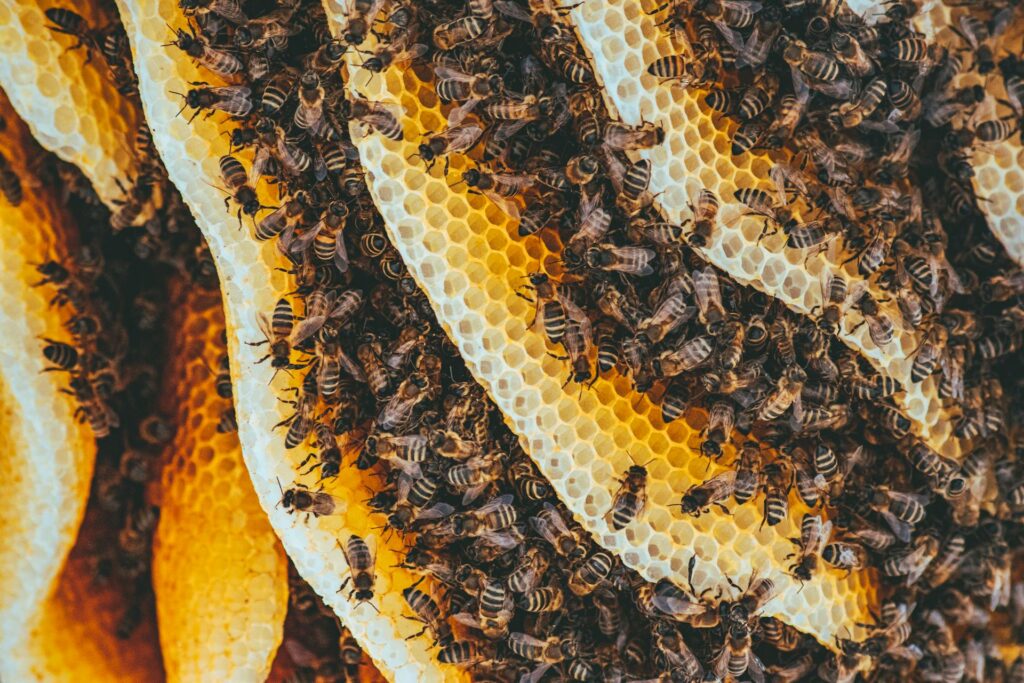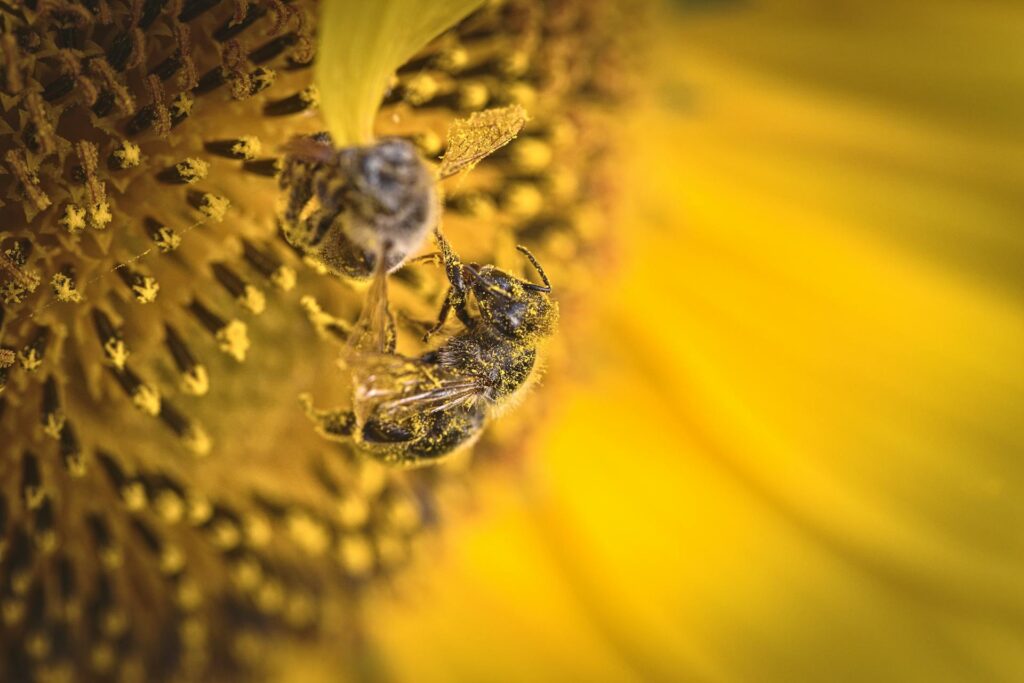Is the world's largest manufacturing company in danger of extinction?
Busy as a bee - a saying that emphasises the dedication with which these beneficial insects do their work. To make a teaspoon of honey, bees have to collect nectar from around 5,000 flowers, and that's roughly a month's work of eight hours a day. However, with bee populations under threat, both understanding their role and taking action to protect them is crucial for ecosystems around the world
Busy as a bee - a saying that emphasises the dedication with which these beneficial insects do their work. To make a teaspoon of honey, bees have to collect nectar from around 5,000 flowers, and that's roughly a month's work of eight hours a day. However, with bee populations under threat, both understanding their role and taking action to protect them is crucial for ecosystems around the world
Bees pollinate plants, help them to reproduce and produce honey. The process of pollination involves the transfer of pollen from the stamens to the pistil of flowers. If there were no bees, we would not know many of the products we eat every day. Vegetables and fruit develop thanks to pollination by bees, but also by bumblebees, butterflies or beetles - without their involvement, they would not develop. It is estimated that 1/3 of food is produced - in various ways - with the help of insects.

Bees produce honey, beeswax, royal jelly and propolis. These products have a wide range of applications, not only in the food industry, but also in cosmetics and medicine. To this day, we can still find a recipe for Cleopatra's bath, who was famous not only for her leadership skills, but also for her beauty. It is said that she owed it to her bathing in donkey milk with honey and oils.
It is not only pollination and bee products that we owe to these industrious insects. Bees contribute to the preservation of biodiversity. Not only bees, but all pollinating insects are considered to have a great impact on the functioning of the ecosystem. Each species has its place and a fully defined function in the ecosystem. If it dies, biodiversity deteriorates and the ecosystem becomes less stable. In maintaining plant diversity in almost all terrestrial ecosystems, pollinating insects play a key role. Over the centuries, strong linkages have developed between pollinators and flowering plants, so that the local extinction of one pollinator species can lead to the extinction of specific plant species. Bees also have a significant impact on biodiversity - not only because plants can reproduce thanks to them, but the seeds and fruit resulting from pollination are food for animals. The above description perfectly illustrates how much we owe to bees. Unfortunately, their populations in Poland and all over the world are dwindling. Today's world is full of threats to bees.

Here are examples of factors negatively affecting this group of insects:
- Use of pesticides in agriculture is one of the main threats to bees, they can cause mortality, as well as disturbances in bee orientation and behaviour.
- Global warming and climate change affect the availability of food for bees and their life cycles. Extreme weather conditions, such as droughts and heavy rainfall, can lead to a reduction in bee populations.
- Bees are exposed to various diseases and parasitessuch as varroa (one of the most dangerous bee diseases in the world). These diseases weaken bee colonies and can lead to their extinction.
- Urbanisation and agricultural intensification are leading to loss of natural habitats bees. The lack of suitable nesting sites and the reduced diversity of flowering plants have a negative impact on bee populations.
Bees play an invaluable role in ecosystems, influencing biodiversity and the production of food or cosmetics. However, they don't have it easy, so it is worth paying attention to the impact we have on their lives and what we can do to help protect them. Protecting bees requires integrated action, such as sustainable farming practices, creating friendly habitats, education and supporting research. Each of us can contribute to the protection of these vital insects by making informed decisions and getting involved in local bee conservation initiatives.



